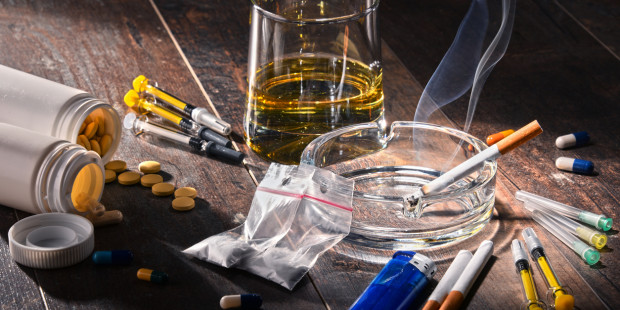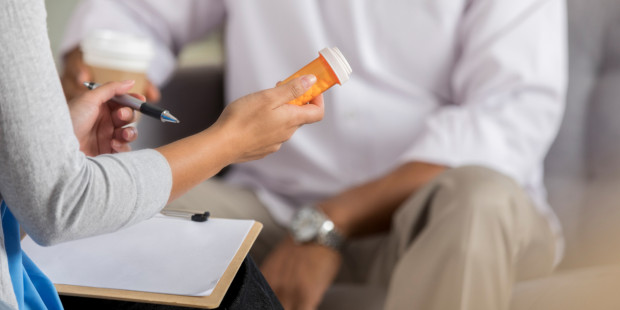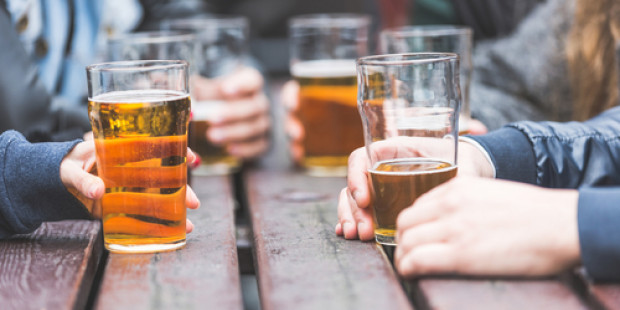There are many possible interactions between recreational drugs and HIV medication, some of which can be dangerous.
The risk of an interaction could be higher when you’ve just started on treatment as your body is getting used to processing the medication, so adding a recreational drug at this time could have added risks.
If you’re using recreational drugs, tell your HIV doctor about it – they’ll explain any risks to you in detail.
Interactions with HIV medication
A lot of the interaction between recreational drugs and HIV medication is related to medication making your body process drugs faster or slower in the liver.
Booster drugs cause a particular type of medication – protease inhibitors – to be processed in the liver more slowly, making its levels higher.
Your body processes recreational drugs in the same way, so taking them with a booster drug can cause dangerously high levels in your body.
The booster drugs most likely to dangerously interact with recreational drugs are:
- ritonavir (Norvir)
- cobicistat (Tybost).
You’ll be taking one of those if you’re taking a protease inhibitor, such as:
- darunavir (Prezista)
- atazanavir (Reyataz)
- the combination drug Kaletra, which contains the booster ritonavir.
Drugs with a high risk of interacting with ritonavir and cobicistat:
- ketamine
- erectile dysfunction drugs, eg Viagra
- benzodiazepines.
Drugs with a moderate risk of interacting with ritonavir and cobicistat:
- crystal meth
- mephedrone
- MDMA (ecstasy).
There have been deaths from interactions between MDMA and ritonavir and between crystal meth and ritonavir.
Some non-nucleoside reverse transcriptase inhibitors (NNRTIs) can interact with some recreational drugs, making the levels lower because the liver processes them faster. This can be problematic if you take more of the recreational drug than you normally would, inject it or mix it with other drugs to try to get an effect.
The NNRTIs that can cause the interaction are:
- efavirenz (Sustiva)
- nevirapine (Viramune)
- etravirine (Intelence).
The interaction affects the levels of:
- cocaine
- ketamine
- erectile dysfunction drugs such as Viagra.
These antiretrovirals are NOT thought to pose a risk of interactions with recreational drugs:
- the nucleoside reverse transcriptase inhibitor (NRTI) class
- the non-nucleoside reverse transcriptase inhibitor (NNRTI) rilpivirine (Edurant)
- the integrase inhibitors raltegravir (Isentress) and doluetegravir (Tivicay)
- the CCR5 inhibitor maraviroc (Celsentri).
Interactions with specific recreational drugs
Anabolic steroids
Steroids and protease inhibitors can both raise levels of LDL ('bad') cholesterol in the body. If you take anabolic steroids and are also taking a protease inhibitor, you need to be monitored closely, particularly if you have any risk factors for heart disease.
Poppers
Poppers can interact with erectile dysfunction drugs such as Viagra, which can lead to a dangerous drop in blood pressure. Ritonavir and cobicistat can make this more likely.
Methadone
NNRTIs including efavirenz and nevirapine (Viramune) can reduce the levels of methadone in your body, resulting in the need for an increased dose. This needs to be monitored carefully to prevent you experiencing withdrawal symptoms.
The same can happen to a lesser degree with protease inhibitors and you may need an increased dose of methadone. Indinavir (Crixivan) has a lower chance of withdrawal symptoms.
Ritonavir reduces the blood levels of methadone and heroin so ritonavir-boosted protease inhibitors will have varying effects on methadone levels. Because of this, blood needs to be monitored.
Cannabis
According to the University of Liverpool HIV Drug Interactions site, there are potential but unstudied interactions between the active substance of cannabis and the NNRTIs delavirdine (Rescriptor), efavirenz (Sustiva) and etravirine (Intelence), as well as with atazanavir (Reyataz).
GHB and GBL
We don’t yet know much about the risk of interactions between either of these drugs and antiretrovirals.
University of Liverpool’s Drug Interactions site advises that there are potential interactions between GHB and some HIV medications. However of a lack of research means the risk of interactions concerning GHB and GBL is relatively unknown.
Further information:
See the drug interaction chart from University of Liverpool for more information about interactions.
There is more information about HIV medication in the context of recreational drugs and sex on our Friday/Monday website.



